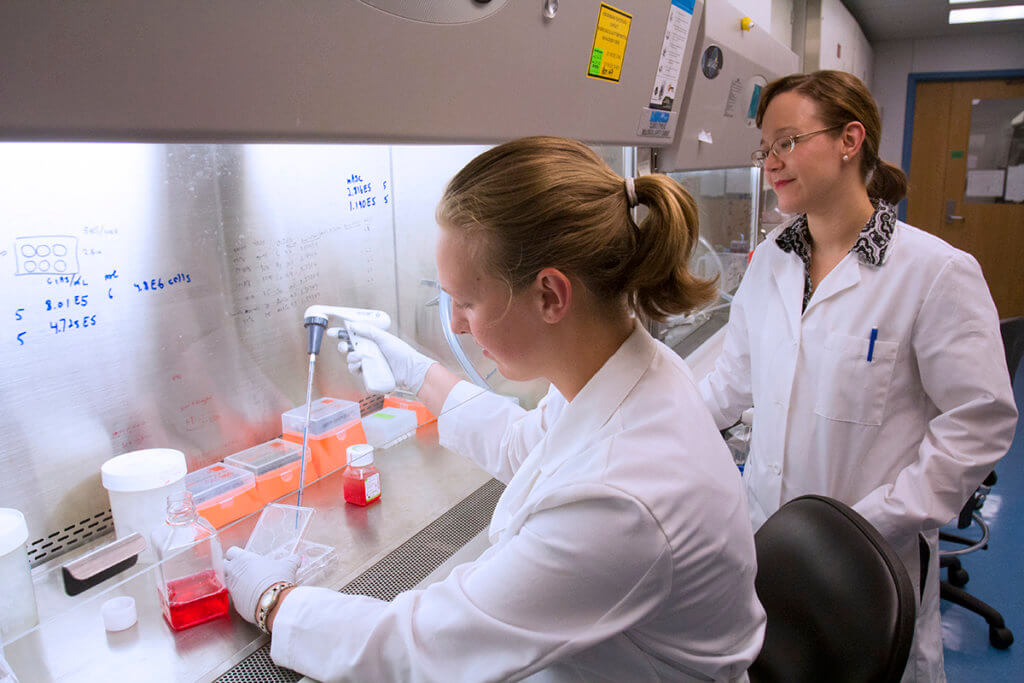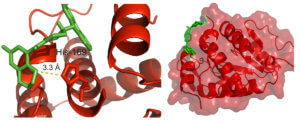PVM Researcher Helps Lead Purdue Effort to Take ‘Accelerator’ off Aggressive Prostate and Other Deadly Tumors
Make a Gift
Support the College
Purdue Veterinary Medicine Associate Professor of Basic Medical Sciences Marxa Figueiredo helped lead a Purdue research team studying ways to make prostate cancer less lethal by making it less aggressive. Prostate cancer is ranked as the second most common and second most fatal cancer among men by the American Cancer Society.

Purdue University associate professor Marxa Figueiredo, right, worked with students as she helped lead a team developing an anti-cancer drug with potential to help people and animals.
The Purdue team has developed a drug to target the laminin receptor (37/67 LR), a membrane protein that, when overexpressed, can promote the growth of cancer cells and tumors. The researchers say it also could help fight other types of aggressive cancers, including pancreatic, colon, liver, and breast.
“We are trying to take cancer’s foot off the accelerator by targeting this receptor,” said Dr. Figueiredo. Purdue’s drug binds to the laminin receptor and cuts its ability to help tumors grow and to communicate with blood vessels, which are the lifeblood for cancer cells and tumors. The Purdue compound mimics anti-proliferative and anti-angiogenesis pathways to inhibit cancer cell viability, proliferation, and migration as well the formation of new blood vessels.

This image shows two poses for a new compound, discovered at Purdue University, docking and targeting the laminin receptor protein for cancer therapy.
The work also aligns with Purdue’s Giant Leaps celebration, acknowledging the University’s global advancements made in health, longevity, and quality of life as part of Purdue’s 150th anniversary. This is one of the four themes of the yearlong celebration’s Ideas Festival, designed to showcase Purdue as an intellectual center solving real-world issues. Solutions such as this drug are also a focus of Purdue’s Discovery Park District.
The Purdue approach is unique because it provides a single drug to perform multiple functions in cancer treatment. The drug also shows promise for treating similar cancers in pets. “It is incredibly rewarding and exciting to potentially provide new options for people and for animals dealing with aggressive tumors,” Dr. Figueiredo said.
Dr. Figueiredo worked with her former graduate student, Sam Umbaugh, to develop this drug. She is currently collaborating with Dr. Herman Sintim, Purdue’s Drug Discovery Professor of Chemistry, to create different versions of the drug that are more effective against various types of cancers. Click here to read a complete news release about the research.
Writer(s): Chris Adam, cladam@prf.org; Kevin Doerr | pvmnews@purdue.edu
